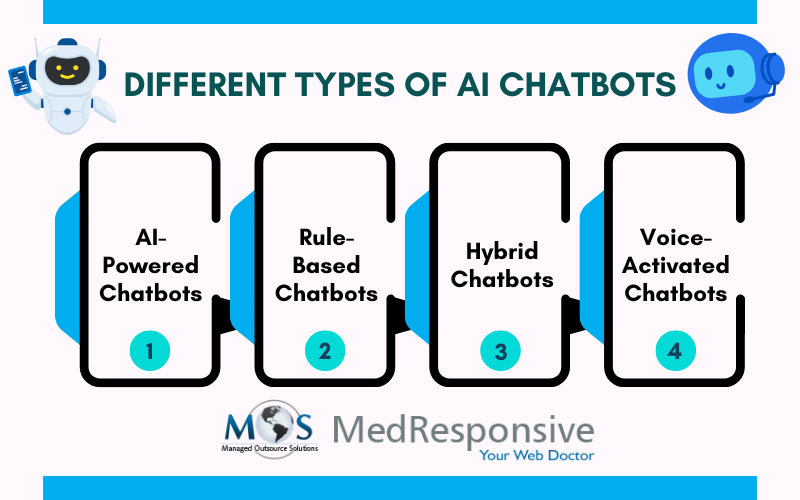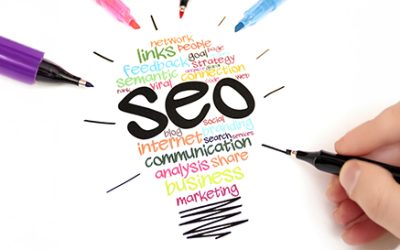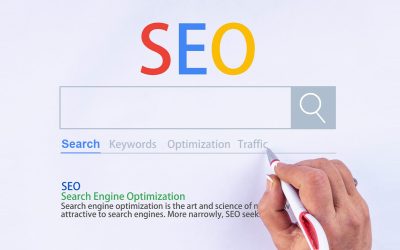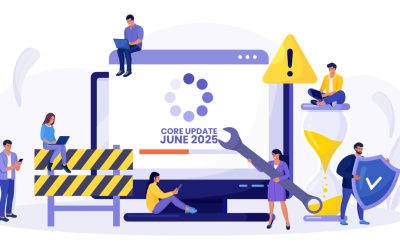In today’s fiercely competitive digital landscape, businesses are constantly in search for advanced tools and quirky strategies to improve their SEO ranking and drive organic traffic to gain that competitive edge. One such tool is the AI-powered chatbot. Originally, AI chatbot was developed for aiding customer service interaction but now, it has grown into a highly customizable tool that can influence how search engines perceive and rank websites. This blog will explore how AI chatbots can improve a website’s SEO performance, the different types of bots, and how to make use of them effectively. This blog will explore how AI chatbots can improve a website’s SEO performance, the different types of bots, and how effective AI SEO services can prove to be in improving your website’s online visibility.
The Role of Chatbots in SEO Performance
Search Engine Optimization (SEO) is crucial for improving online visibility and ensuring websites rank higher in search engine results pages (SERPs) like Google, to attract more organic traffic. It is an inevitable component in any business’ digital marketing strategy, as it not only improves the quality and quantity of visitors but also helps generate leads and boost conversions.
Google has now prioritized User Experience (UX) as an element that influences a website’s rankings. And, this is where AI chatbots come into play as they can enhance website visitor engagement, improve website interaction and mitigate bounce rates — all of which contributes to a better SEO performance.
What Are the Different Types of AI Chatbots?
Before delving into how AI chatbots improve SEO performance, it is important to understand the different types of chatbots.
- AI-powered Chatbots: These bots use Machine Learning (ML) and Natural Language Processing (NLP) to understand user inputs, constantly learn from past & present interactions and provide more accurate responses, each time.
- Rule-based Chatbots: These are basic chatbots that work on predefined rules. They respond based on specific prompts or keywords. They can offer quick answers but lack advanced capabilities of other chatbots.
- Hybrid Chatbots: As the name suggests, these bots combine both rule-based and AI capabilities. They can handle complex queries and work according to the requirements by switching between rule-based and AI environments.
- Voice-activated Chatbots: These chatbots operate on voice commands to perform tasks or conduct searches. They use speech recognition technology to understand the prompts and respond accordingly.
For SEO purposes, AI-powered or hybrid chatbots have the capability to understand complex user requirements, customize responses accordingly and provide accurate results.
How Can AI Chatbots Boost SEO Performance?
User Experience (UX) and SEO are now more significant than ever before. By improving a website’s UX, it can positively impact the SEO performance. All search engines are now prioritizing websites with excellent UX; AI Chatbots & SEO can work together to boost website traffic and SEO ranking in different ways:
- Improved User Experience (UX): One of the contributing factors towards a better page ranking in Google is user experience. It prioritizes several elements like ease of navigation, website speed and mobile responsiveness. AI chatbots can deliver fast and engaging interactions, instant responses to the visitors, helping them find information quickly, which leads to improved SEO.
- Enhanced Interaction and Engagement: When visitors have a positive experience with the website, they tend to stay longer, which enhances the site’s SEO metrics. AI chatbots engage users within the website through engaging conversations, increasing the website’s dwell time — a key metric Google uses to determine the quality of the website. For instance, chatbots may ask questions related to the visitor’s behavior and intent, which makes them stay longer, thereby reducing the overall bounce rate, increasing page views, time on site—all that increases the site’s rank.
- Data Collection for Keyword Strategy: Since AI chatbots constantly interact with website visitors, they collate data regarding their preferences, pain points and other related queries. This is vital for setting up a keyword strategy to improve the website’s SEO performance. For example, multiple visitors can ask about a particular content or an item which the website owner can use to enhance not just the business of the website but also create content to improve the ranking and satisfy customers as well.
- Round-the-Clock Availability: One of the significant advantages of AI is its 24×7 availability. Visitors can raise queries, at any time, from any time zone—even if it is outside regular business hours. This boosts the chance of visitors to stay on the website for long and return in the future as well. This regular engagement improves the website’s overall SEO metrics, including bounce rate and repeated visits.
- Generate Feedback and Ideas: A persistent challenge with SEO is creating high-quality content that can boost site ranking. Through visitor engagement and feedback, chatbots can identify their interests and complaints. By analyzing chatbot logs, businesses can identify trends and gaps in the website and respond by creating the required content or requested item, thereby making the website comprehensive and SEO-friendly.
AI Chatbots: Best Practices for Implementation
As mentioned earlier, chatbots are now at the forefront of customer engagement across major industries. Chatbots have evolved from a basic support tool to sophisticated virtual agents capable of handling a wide array of customer-centric tasks. According to a survey by Tech Report, AI bots now handle 65% of B2C communications, and overall chatbot usage has increased by 92% since 2019. This demonstrates AI chatbots’ influence in this new age SEO market.
- Build for User Experience: Design an intuitive and visually appealing chatbot with smooth user flow, faster response time and enhanced escalation protocol; to deliver the best customer experience possible.
- Create a Personalized Experience: Personalization is understated, yet one of the key factors contributing towards an enhanced customer engagement. AI chatbot should be able to understand the visitors’ requests and intent to personalize conversations.
- Build a Strong Knowledge Base: Leverage advanced technologies like Large Language Models (LLMs) to handle complex queries and build a centralized knowledge platform that can provide consistently accurate response for the visitors.
- Ensure Data Security and Compliance: Make sure the sensitive user information is secured within the platform, compliant with industry regulations. Perform regular updates to enhance security and gain trust from visitors.
- Conduct Periodic Testing Sessions: Chatbots need regular training and performance updates to ensure they continue to provide accurate information. Test the chatbot across various environments to identify bugs, improve overall functionality & user experience.
The future of AI and chatbot technologies have great potential and are destined to make significant strides in driving SEO innovation to the next level. AI chatbots will continue to evolve into a valuable tool, offering more personalized and contextually relevant interactions. From improving customer engagement to lowering bounce rates and gathering valuable insights, they provide multifaceted options in boosting a website’s SEO rankings. Integrating a well trained chatbot and aligning it with one’s SEO strategy can enhance the search rankings of a website and improve customer satisfaction at the same time.





